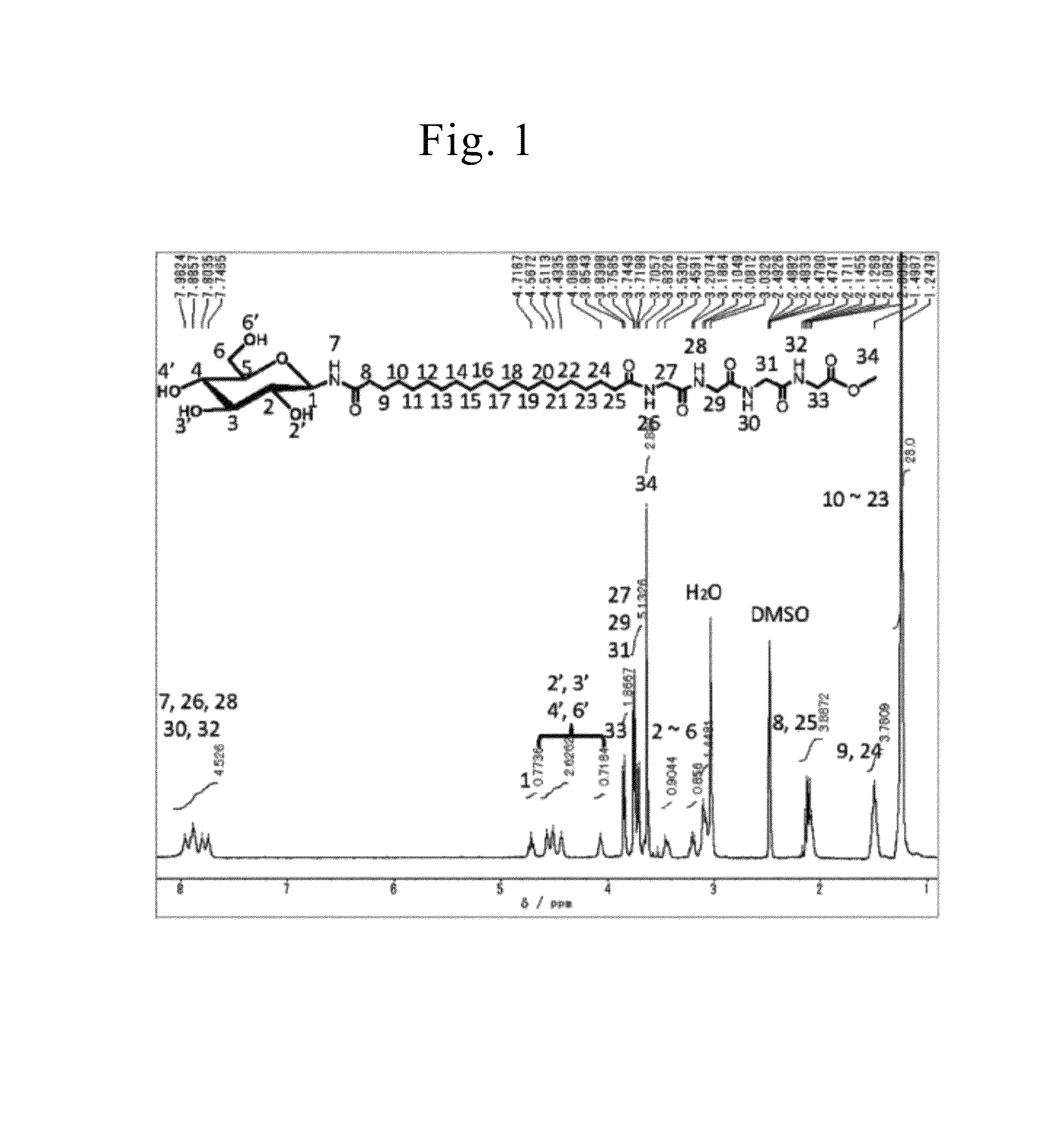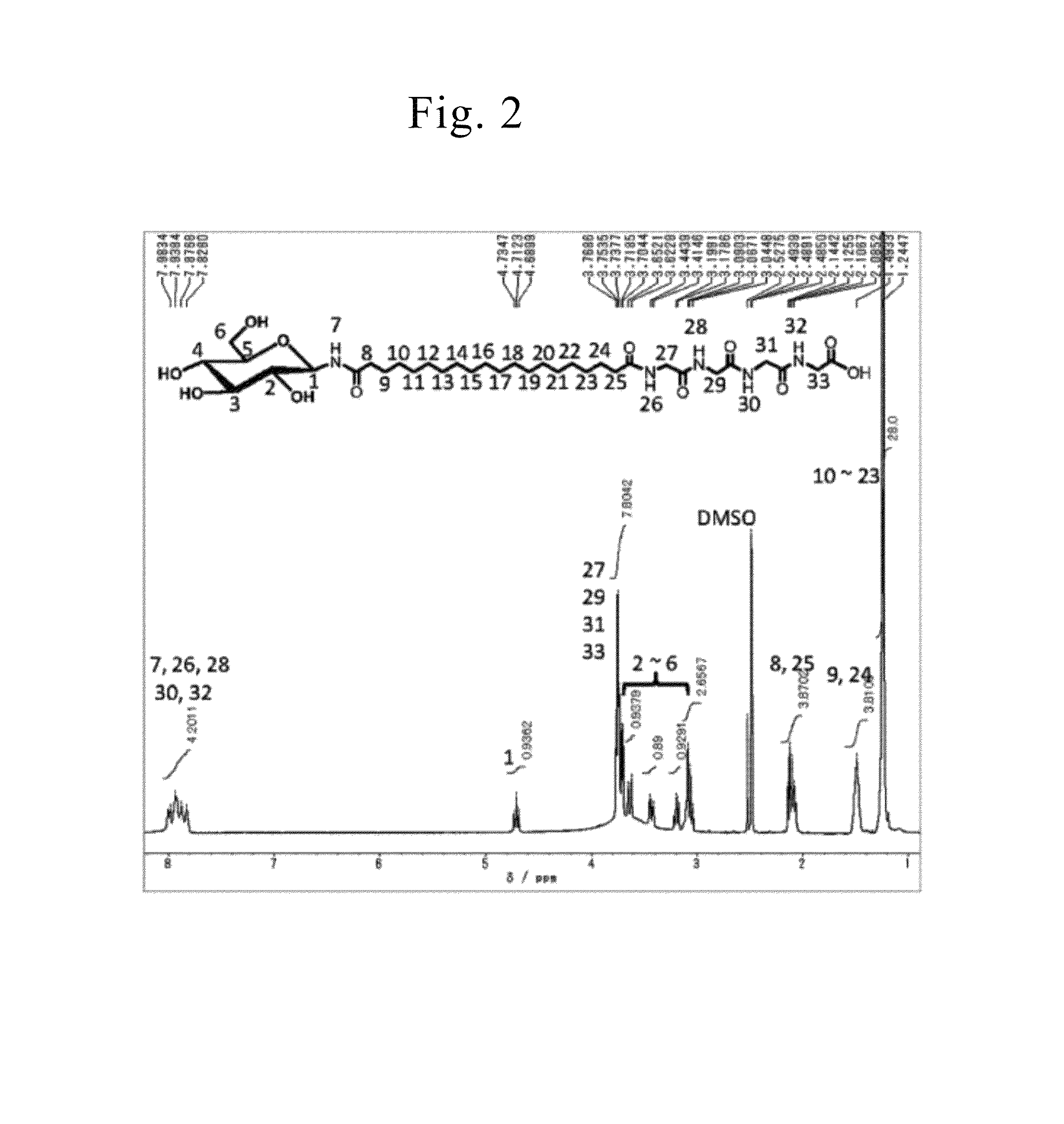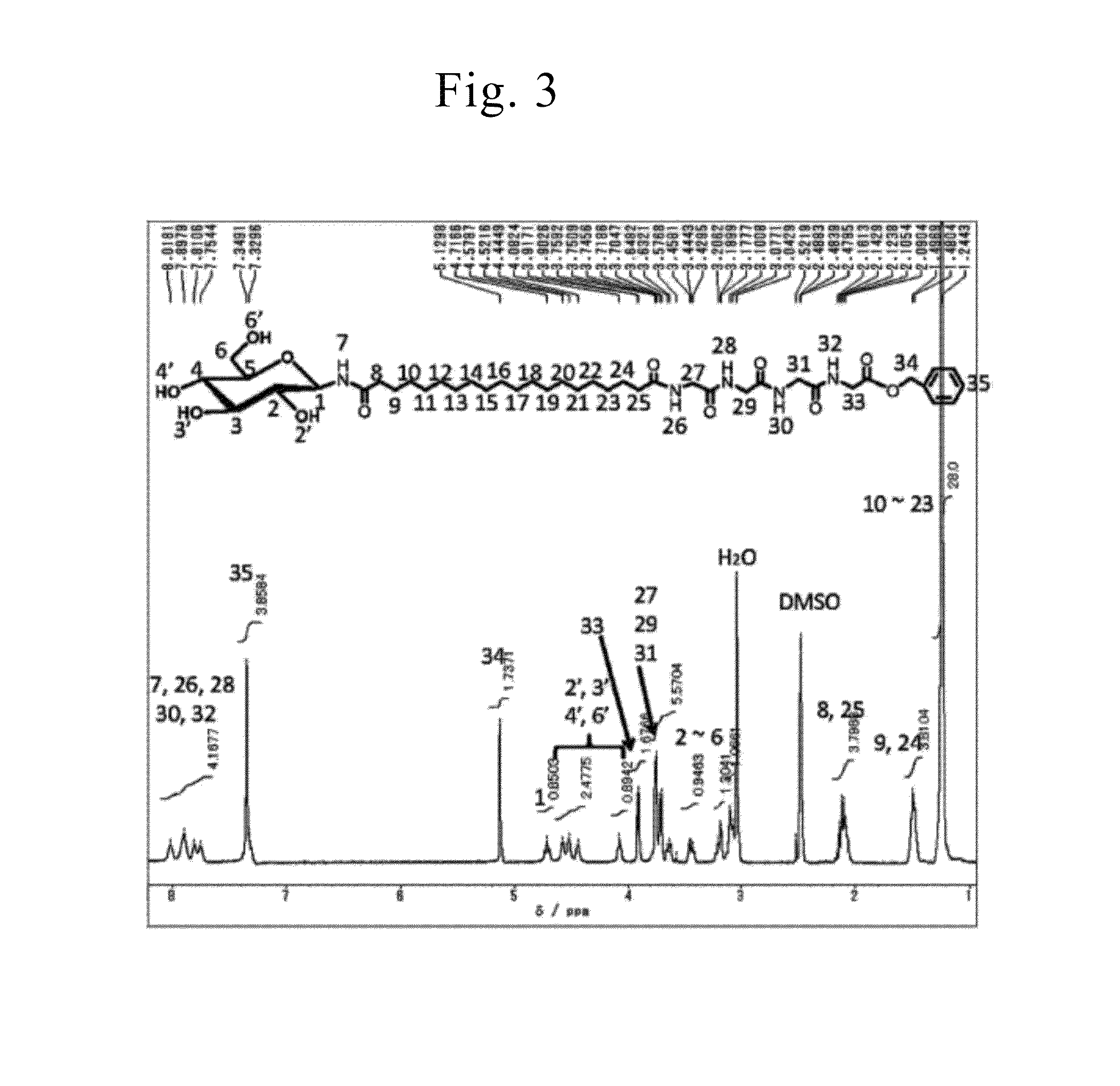Organic nanotube having hydrophobized inner surface, and encapsulated medicinal agent prepared using the nanotube
a nanotube and hydrophobic technology, applied in the direction of peptides, drug compositions, peptides, etc., can solve the problems of difficult selective and efficient encapsulation of raw materials such as drugs, complex preparations, and long time-consuming, etc., to achieve stable tube shape, high dispersibility, and significant long-term preservation stability
- Summary
- Abstract
- Description
- Claims
- Application Information
AI Technical Summary
Benefits of technology
Problems solved by technology
Method used
Image
Examples
reference example 1
Preparation of 1-β-D-Glucopyranosylamine
[0268]D-glucose (1.8 g, 10 mmol), ammonium bicarbonate (0.8 g, 10 mmol), and 28% aqueous ammonia (55 ml) were put in a branched flask and stirred at 41° C. for 48 hours. The reaction solution was condensed under reduced pressure and freeze-dried, thereby obtaining the desired 1-β-D-glucopyranosylamine as a solid.
reference example 2
Preparation of Intermediate 3 Represented by General Formula (3) (G is a 1-β-D-Glucopyranosyl Group, and n=18)
[0269]746 mg of eicosane diacid monomethyl ester (2.1 mmol) was dissolved in 33 ml of methanol and 17 ml of ethyl acetate, and then 405 mg of DMT-MM (1.47 mmol) and 250 mg of 1-β-D-glucopyranosylamine (1.4 mmol) were added thereto, followed by stirring at room temperature for 4.5 hours. The reaction solution was filtered, thereby obtaining methyl ester of the desired Intermediate 3 as a white solid. Methyl ester (257 mg, 0.5 mmol) of the desired Intermediate 3 was dispersed in a methanol / water solvent, and then 0.9 ml of an aqueous sodium hydroxide solution (1 mol / L) was added thereto to perform hydrolysis at 60° C. After adjusting a pH to 4 by adding hydrochloric acid, insoluble white solid was filtered, thereby obtaining 171 mg of the desired intermediate 3 (24%) as a white solid.
preparation example 1
Synthesis of Asymmetric Bipolar Lipid Molecule (Compound-1a of Formula (1), G=1-β-D-Glucopyranosyl Group, n=16, Z1=ED, Y=ylG, m=3, and X=H)
[0270]Lipid molecules (Compound-1a) among the asymmetric bipolar lipid molecules represented by General formula (1) wherein G was a 1-β-D-glucopyranosyl group, n was 16, Z1 was ED, Y was ylG, m was 3, and X was H) were synthesized according to the method disclosed in Non-Patent Literature 18. Compound-1a was confirmed through 1H-NMR, IR, and element analysis.
PUM
| Property | Measurement | Unit |
|---|---|---|
| inner diameter | aaaaa | aaaaa |
| outer diameter | aaaaa | aaaaa |
| inner diameter | aaaaa | aaaaa |
Abstract
Description
Claims
Application Information
 Login to View More
Login to View More - R&D
- Intellectual Property
- Life Sciences
- Materials
- Tech Scout
- Unparalleled Data Quality
- Higher Quality Content
- 60% Fewer Hallucinations
Browse by: Latest US Patents, China's latest patents, Technical Efficacy Thesaurus, Application Domain, Technology Topic, Popular Technical Reports.
© 2025 PatSnap. All rights reserved.Legal|Privacy policy|Modern Slavery Act Transparency Statement|Sitemap|About US| Contact US: help@patsnap.com



